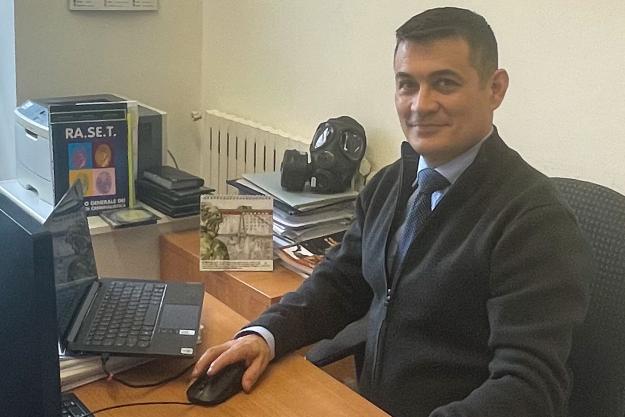
THE HAGUE, Netherlands—11 May 2022 —National Authorities and chemical industry representatives worked closely with technical experts from the Organisation for the Prohibition of Chemical Weapons (OPCW) to enhance knowledge and skills in preparing declarations and receiving and escorting OPCW inspections during an advanced training course held online from 25 April to 11 May.
In her opening remarks to the course participants, the Head of the OPCW’s Implementation Support Branch emphasised: “Successful implementation of Article VI of the Chemical Weapons Convention (CWC) is greatly facilitated when professionals – from both government and industry – come together to learn, share ideas and best practices and discuss emerging trends and issues. Implementation is also strengthened when national stakeholders take active steps to enhance their knowledge of key State Party obligations under the Convention.”
Course participant, Mr Ninkabou Tchein of the National Authority of Togo, reflected: “The course provided an important opportunity to engage collaboratively with the Secretariat on declarations and inspections issues, allowing us to enhance our knowledge and understanding of key national obligations. In addition to other highly relevant information, this course provided a comprehensive overview of essential Article VI requirements, including the effective and timely submission of declarations and the role of the National Authority in receiving and escorting OPCW inspections.”
The three-week online course combined self-paced learning with interactive live sessions. Following two weeks of online learning, the Secretariat held two live interactive sessions during which participants and OPCW experts discussed the implementation of Article VI obligations as well as opportunities to address relevant challenges and issues.
The course was attended by 19 participants from 12 Member States: Belgium, Botswana, Democratic Republic of the Congo, Estonia, Ethiopia, Italy, Kenya, Malawi, Portugal, Romania, South Africa, and Togo.
Background
States Parties to the Chemical Weapons Convention have obligations relating to reporting the production of certain toxic chemicals that could be used for chemical weapons purposes. National obligations include the collection of information, and submission of declarations regarding these chemicals. Based on the information provided in a declaration, OPCW inspectors may visit industrial facilities where chemicals are produced, processed, or consumed to verify that declarations are complete and accurate.
As of 31 March 2022, 67 OPCW Member States had submitted declarations for declarable facilities or activities for 2021, involving over 5,300 sites. Since the Chemical Weapons Convention entered into force in 1997, the OPCW has conducted more than 4,200 inspections of industrial sites to verify that chemicals are produced and used solely for peaceful purposes.
As the implementing body for the Chemical Weapons Convention, the OPCW, with its 193 Member States, oversees the global endeavour to permanently eliminate chemical weapons. Since the Convention’s entry into force in 1997, it is the most successful disarmament treaty eliminating an entire class of weapons of mass destruction.
Over 99% of all declared chemical weapon stockpiles have been destroyed under OPCW verification. For its extensive efforts in eliminating chemical weapons, the OPCW received the 2013 Nobel Peace Prize.
